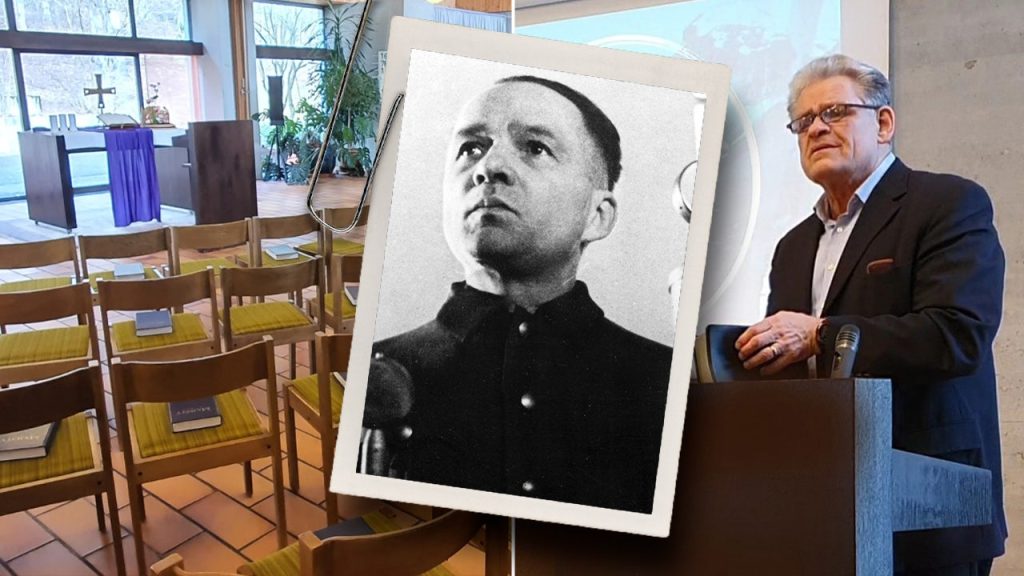Kai Höss, the lead pastor at the Bible Church of Stuttgart, shares a message of salvation and God’s grace every Sunday. Despite his Christian faith, he is the grandson of Rudolf Höss, the former Auschwitz Commandant responsible for the mass murder of over a million people, mostly Jews. Raised in a non-Christian home, Kai turned his life around after a medical operation went wrong and he found a Bible in his hospital room. Saved in 1989, he openly speaks about his family’s past and his journey to salvation, advocating against antisemitism and promoting forgiveness, grace, and reconciliation. Kai’s Christian faith has helped him come to terms with his grandfather’s dark legacy and seek ways to make amends.
When addressing students about antisemitism, Kai points to the historical misconceptions and false ideologies that fueled hatred during World War II. Drawing parallels to current social media platforms like TikTok, he warns of the dangers of superficial, emotionally charged content that can influence people without critical thinking. While reacting to anti-Israel protests on college campuses, Kai emphasizes the importance of understanding historical and political complexities before supporting violence driven by emotions or ideologies. He notes that many individuals may participate in such activities without a full awareness of the implications of their actions.
Kai urges students to question narratives and seek deeper truths, rather than succumbing to TikTok mentality that promotes superficial content. He highlights the emotional responses that often fuel antisemitic rhetoric on college campuses and across social media platforms. By sharing his personal journey and experiences, Kai aims to combat hate through education, understanding, and empathy. As a Christian pastor with a complex family history, he believes in the power of forgiveness and grace to overcome even the darkest past.
Reflecting on his visit to Auschwitz with his father for a documentary about his grandfather, Kai acknowledges the immense suffering caused by the concentration camp and the atrocities committed there. Meeting with Holocaust survivor Anita Lasker-Wallfisch helped Kai and his father come to terms with their family’s past and the impact Rudolf Höss had on so many lives. Their prayers for Anita and the deep sense of humility felt during their visit underscore Kai’s commitment to promoting reconciliation and understanding. As he prepares to speak at a synagogue for the 80th anniversary of Auschwitz’s liberation, Kai sees it as an opportunity to continue spreading a message of peace, forgiveness, and healing.
Despite the challenges he faced upon discovering his family history, Kai has embraced his role as an advocate against antisemitism and a messenger of God’s grace. By sharing his story and challenging students to think critically about the information they consume, he hopes to prevent the spread of hate and violence in the world. As a Christian pastor who has personally experienced the transformative power of faith and forgiveness, Kai remains dedicated to promoting understanding, reconciliation, and empathy in the face of prejudice and discrimination. His journey serves as a poignant reminder of the importance of confronting the past, seeking forgiveness, and fostering a more compassionate and inclusive society.


